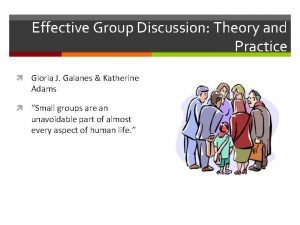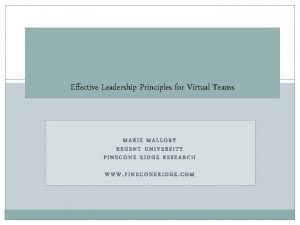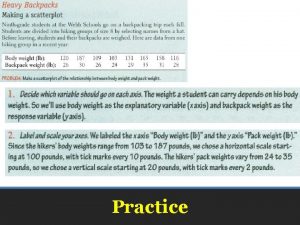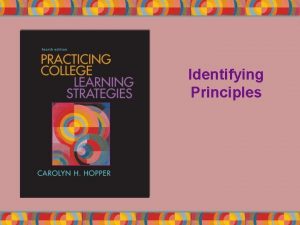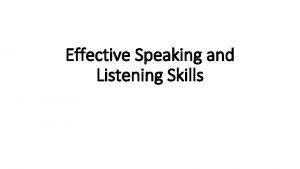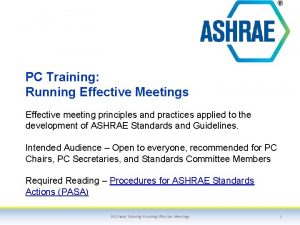Principles of Effective Practice Principles of Effective Practice







- Slides: 7

Principles of Effective Practice

Principles of Effective Practice • In order to ensure that practices are effective and that improvement will take place, performers need to consider the Principles of Effective Practice. • By considering the following acronym performers can plan and carry out an effective training programme that will enable them to achieve their goals.

Principles of Effective Practice ● ● ● ● ● V- Varied P- Progressive S- Specific M- Measureable A- Achievable R- Realistic T- Time Phased E- Exciting R- Recorded

What do they mean in practice? Varied Practices must be varied so you are motivated to improve and practice. Progressive Practices must show progression. As you improve, you can move on to slightly more demanding practices. You can add to the demands of practices by increasing competition, having to carry out skills quicker, performing longer sequences of work and being able to cope with the demands of performing under pressure. Specific Practices must be specific to the performer, the activity and the stage of learning they are at.

What do they mean in practice? Measurable Set measurable targets for improvement. For example, land the shuttle in the back tramlines, 15 out of 20. Achievable Targets must be agreed between a coach and performer to ensure they are suitable. Realistic Practices must be realistic to the challenges of the game (game-like) and the performer’s level of ability. This makes training goals attainable. By doing this it is easier to transfer your improvements back into the activity.

What do they mean in practice? Time Phased Practices must have intervals of rest to maintain quality. This will avoid fatigue setting in and increase motivation. Exciting Practices must be exciting and challenging. This makes you want to practice and keeps high levels of concentration and motivation. A short, exciting, and interesting training session is better than an overlong one where you become bored and disinterested. Recorded Make a record of what your training goals are in your training diary. As you achieve your short-term goals make a record of this. This keeps focus and also allows you to keep track of your progress.

Questions Choose one of the following questions: 1) What Principles of Effective Practice did you take into account when designing your training programme? (6) 2) Discuss the principles of training you had to take into account when designing a physical training program. (6)


